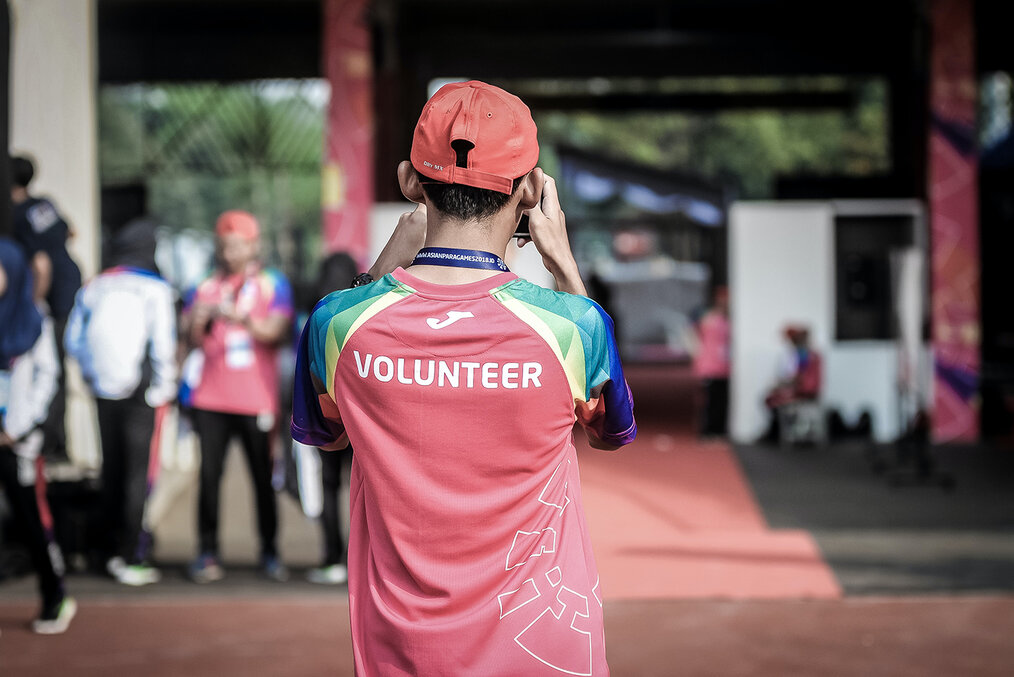11 Secrets to Winning Study Abroad Scholarships
Explore our tips and tricks to improve your study abroad scholarship applications!
Key Takeaways 🔑
- Scholarship applications take hard work but can be well worth the time.
- Consider less popular destinations to improve your scholarship chances.
- Go above and beyond! Ensure your application is about more than just yourself.

Before I turned 18, I had never left the country before. My parents didn't have the money to send me to college, so I knew early on that getting a scholarship to go to school would be critical. I applied to 13 universities and wound up with a full ride to the University of North Carolina at Chapel Hill.
Once at UNC, I vowed to go abroad as soon as I could find a way to afford it. I applied for dozens of scholarships, was awarded 5, and spent every summer and a semester overseas. I studied Mandarin in China, did research on non-profits in Guatemala, studied the Chinese diaspora in Egypt, and even won a free spring break trip to South Korea. This experience has taught me a number of lessons on finding, applying, and receiving funding to study abroad. Read on for my top tips on funding your study abroad experience.
Your odds of getting money to study, volunteer, or intern abroad might be far higher than you expect.
While many scholarships are very competitive, there are plenty of others that may be easier to win than you think. Your odds of getting money to study, volunteer, or intern abroad might be far higher than you expect -- you just have to identify the opportunities, tell an honest, compelling story, and hit "apply!"
One of the biggest mistakes you can make in setting up a financial plan for going overseas is not even applying for study abroad scholarships.
Here are 11 tips for study abroad scholarship applications to help make your dreams of studying abroad a reality.
1. Be prepared to work hard on your study abroad scholarship applications

When trying to get a scholarship, whether for full-time study or for study abroad, you will need to put in the work. It'll take time, so set up a schedule where you can designate up to 3 hours to work on applications. You'll probably need to apply to half a dozen opportunities for every one you hope to win, depending on your circumstances.
2. Make a list of everything you qualify for

Start with your home university, then move on to external providers. Meet with folks at the career center or study abroad office. Find out what's available, who's eligible, what the requirements are, and when the deadline is. Make a spreadsheet in Excel or Google Drive.
Then move on to Google. Search "study abroad + undergraduate + scholarship + country/language/major" and add those to the list. You're going to wind up applying to as many as possible.
Here are a few resources to get you started:
- Our latest list of study abroad scholarships and grants
- The Go Overseas's study abroad scholarships page
- General Scholarship Search Engines
3. Understand the organization's goals and values

Before starting an application, you have to understand your audience. Look at what the organization does, their mission statement or values page, and understand what seems important to them and how they talk about themselves. Then identify those keywords and values, and make sure you work those into your application in a way that you relate to.
4. Understand how they evaluate candidates

What are the qualifications the organization is looking for in prospective scholarship recipients? Look at past winners or the detailed FAQ on their website. Re-read the parts where they describe how candidates will be evaluated. Keep coming back to this and checking yourself and your application against these criteria. Be sure to highlight areas in which you relate -- but always be honest and genuine!
5. Consider studying critical languages and going to less commonly-visited countries

This is part of the reason I wound up studying Mandarin so many years ago: there was so much support for it! While most US students are looking to go to Europe, there are lots of scholarships for those who want to get off the beaten path.
If those regions or languages appeal to you, consider taking the leap and refocusing on those opportunities. If 100 students want to study in Spain, your odds are 1:100; if 15 students want to study in Ghana, your odds are 1:15.
Even if you want to study a more popular language, try doing so in a less popular destination. For example, apply to study French in Senegal instead of France or Spanish in Panama instead of Spain.
6. Essay tip: avoid generic statements at all costs

Whoever you are, you have a unique and compelling story worth being told. So don't say things like, "I want to immerse myself in new cultures" or "I've always been interested in Arabic." Tell the story about the refugee family that moved down the block, or how you love Egyptian cinema, or how your friendship with an exchange student in middle school inspired you. Make your interests come alive through concise stories and personal experiences.
Talk to your professors or other possible references early, and get the verbal okay that they'll support you.
Re-read your essay when it's done. ensure it is entirely unique to you and only you. Proofreading is essential, so try to get friends or family to read it over as well.
7. Include a plan for giving back

Even if the scholarship doesn't require it, volunteer your ideas for how you'll bring your experience back home to help others. Will you make short videos about famous landmarks in Asia and share them with the primary school teachers? Will you have a blog? Do a photography exhibition?
Make sure it's something you can follow through on, but an orientation to using your time overseas for the benefit of more than just yourself is always appreciated.
8. Spend the time to get stellar recommendations

Talk to your professors or other possible references early. Get the verbal okay that they'll support you, and then hand-deliver them a package that includes a concise list of bullet-pointed information about the scholarship and about you. Include a few specific examples of why you qualify and your resume.
This makes it easy for references to write you a good letter of recommendation, should the scholarship require it.
9. Double check eligibility and application requirements

Before submitting anything, double-check that you meet all the eligibility requirements and have all aspects of the application satisfactorily completed. Many students wind up being disqualified because they've simply forgotten something.
Also, go back to the essays. If the prompt asked you to talk about your leadership experience, community involvement, and interest in the country or region, have you done all three? This extra attention to the prompt will go a long way!
10. Print it out and read everything out loud

It's hard to proofread things on a screen. Once you've finished your essays and have an updated resume, print it all out and read every word out loud -- even your resume. Read through your application line-by-line, and correct grammar and typos in red pen.
Edit the digital version, and repeat the process until there are no errors. A few typos could stand between you and several thousand dollars, so this time will be well spent.
11. Apply early

Even if there's no preference indicated for early applicants, remember that all applications are being reviewed by humans -- humans who most likely have other jobs and responsibilities besides selecting scholarship winners. Once the deadline is reached, those evaluators will be inundated with applications and may start skimming through applications.
You have the best shot of winning when someone reads your story, relates to it, and finds it an appealing fit for their organization's money. If your application is in a stack of ten because you applied early, it is perhaps more likely to get a thorough read-through.
Remember, every little bit helps. Even if a scholarship award is only $1,500, that's your round-trip international airfare right there! It all adds up.
If it's in a stack of 100 along with everyone else who applied just in time, your chances could be decreased. This is just a theory I have, but it never hurts to apply early and look eager. An added bonus is you won't risk having to rush at the last minute, which will be noticeable in your application.
It all adds up

Remember, every little bit helps towards funding your study abroad experience. Even if a scholarship award is only $1,500, that's your round-trip international airfare right there! It all adds up. Not to mention, once you've completed one scholarship application, it's much easier to re-purpose your essays and recommendations to apply for dozens of other opportunities. It's a numbers game, and if you have a strong profile and determination, you can have a strong chance of being awarded funding.
It's also worthwhile to mention persistence. Maybe this year, you don't receive any scholarships. That just means you need to continue to do well in school, find outlets for your international interests that will improve your eligibility, and re-apply next year.
Ready to start applying? Check out the latest study abroad scholarships and grants you can apply for today!
